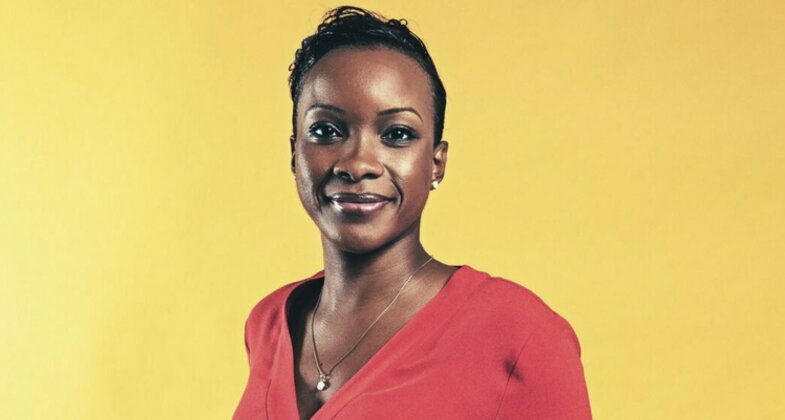Gender equality in hospitality, travel & leisure – What effect will the pandemic have?
Tea Colaianni is Chair and Founder of WiHTL – Women in Hospitality, Travel and Leisure, an organisation devoted to increasing women’s and ethnic minorities’ representation at all levels and in leadership positions across Hospitality, Travel and Leisure (HTL). A keen advocate of gender diversity, in 2018 Tea rallied support to conduct the first ever research into female leadership across the HTL sector. Since then she has created the most impactful and collaborative community of leaders across the sector, focusing on two strands of the Diversity and Inclusion (D&I) spectrum – gender and race and ethnicity through its three pillars approach: research, collaboration and commitment. Tea is a non-Executive Director on a number of Boards and has held senior HR Executive roles at Merlin Entertainments Plc and Hilton Hotels.
WiHTL are currently supporting the communities that they serve in responding to COVID-19. Kathryn Gill, Consultant in our Hospitality & Leisure Practice, recently spoke with Tea regarding the longer term impact the pandemic will have on gender equality in the sector.
We are in an unprecedented situation and one which makes it quite difficult for emerging female leaders. What do you believe impact of the pandemic will be on emerging female leaders across hospitality, travel and leisure?
The last three months have been exceptionally difficult for leaders and employees at all levels on a professional and personal basis. Across HTL, most organisations have had to deal with the difficult task of closing businesses down and furloughing the majority of their employees in the UK and across multiple jurisdictions. Leaders have had to take some tough decisions – fighting for survival, preserving cash, refocusing their business priorities, revisiting operating models, refinancing, redesigning their organisation, and sadly planning for, and executing redundancies.
All of this has been done in an environment where data and insight has not been available, in a constantly evolving societal and legislative context. Those who have continued to work throughout this period of time are now starting to feel absolutely exhausted with some complaining of ’Zoom fatigue’, as well as the pressures from managing childcare, keeping children focused on online schooling and household chores.
According to a recently published report by the OECD “Women at the core of the fight against COVID-19 crisis”, the pandemic is harming health, social and economic well-being worldwide, with women at the centre in a variety of ways. Women are leading the health response, are shouldering much of the burden at home, given school and childcare facility closures and longstanding gender inequalities in unpaid work, face high risks of job and income loss, and face increased risks of violence, exploitation, abuse or harassment during times of crisis and quarantine.
With the HTL sector being a major employer of women (on average across OECD countries with comparable data, women make up roughly 47% of employment in the air transport industry, 53% in food and beverage services, and 60% in accommodation services – ILO, 2020), the economic fallout from COVID-19 is likely to leave women potentially disadvantaged. As the economic downturn deepens and employers try to do more with less, discrimination and employers’ negative attitudes towards pregnant women and new mums are sadly intensifying (TUC, June 2020).
From a diversity and inclusion perspective, market turbulence suggests that corporate boards are more likely to reach quicker decisions, and arguably operate more efficiently with less diversity, since diversity has been found to contribute to more robust discussions and delayed decision making. There is therefore the potential for this crisis to impact on corporate board diversity by stagnating it at current or less level in order to limit conflict and accelerate speed of action.
There is also a risk that the D&I targets that many businesses had set themselves will lose momentum and take a backseat. In March, the Government Equalities Office announced that they were suspending the deadline for 2019/20 gender pay gap reporting due to the impact of COVID-19 on employers. Despite this, many employers continued to report, demonstrating their ongoing commitment to tackling the gender pay gap and promoting gender balance in their workforce. Approximately 48% of organisations have voluntarily reported their pay gap in 2019/20 and the data shows that organisations will need to continue to focus hard on improving the balance of men and women, particularly at senior levels, before we see a significant change to the overall pay gap (PwC, June 2020). Not surprisingly, the HTL sector was amongst the sectors with the lowest disclosure rates, hence we will not be able to fully assess progress or not in this regard fully.
Many organisations across HTL have pressed the pause button on diversity and inclusion programmes and many have furloughed their D&I officers or assigned them to different roles during the pandemic or re-focused them on well-being initiatives.
One positive of COVID-19 is that it has demonstrated the effectiveness of remote-working. Do you believe this can help to address progression bias? If so, how?
I believe this crisis needs to be the catalyst for more positive gendered change if we are able to harness the benefits and mitigate the risks. The move to virtual workplaces could create a whole new set of norms for normally office-based occupations. There is now a clear operating example of how we can work effectively in remote and flexible settings. This acceleration and mainstreaming of online and at-home working arrangements should benefit women’s careers and improve work-life balance for all employees.
We can take this opportunity to accelerate equality – we must keep our foot on the gas, reframe things, and build a D&I strategy that works in practice, not just in theory. As businesses restructure themselves, leaders have a duty to put diversity and inclusion at the heart of their approach, showing their unwavering commitment to diversity and creating more opportunities for diverse talent at all levels capitalising on the richness and innovation that come from different perspectives. This means more chances for emerging talent, to step up and prove themselves in this new world.
And finally, any further thoughts on what the industry is facing?
With having to comply with social distancing measures and the looming end of the ‘Job Retention Scheme’, amongst others, the industry faces dramatic challenges and tough times ahead. On the positive side, there are plenty of us who are looking forward to having a nice meal in one of our favourite restaurants, going on holiday, enjoying some leisure time at some of our amazing attractions and staying in a nice hotel as soon as it is safe to do so.
We are a resilient, fun, dynamic and innovative industry that attracts amazing talent and offers great opportunities to develop and progress. This is not the time to press the pause button on inclusion, this is the time to be even bolder and seize the moment to forge a new commitment to equality and fairness. We need leaders at all levels to accelerate their efforts to create inclusive cultures in the broadest sense.
For any information about WiHTL, please visit their website www.wihtl.com.



